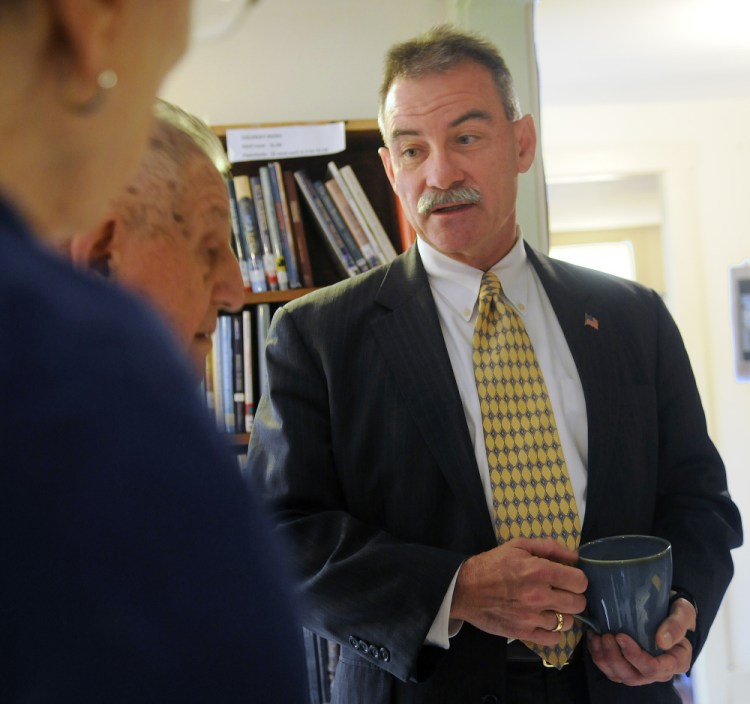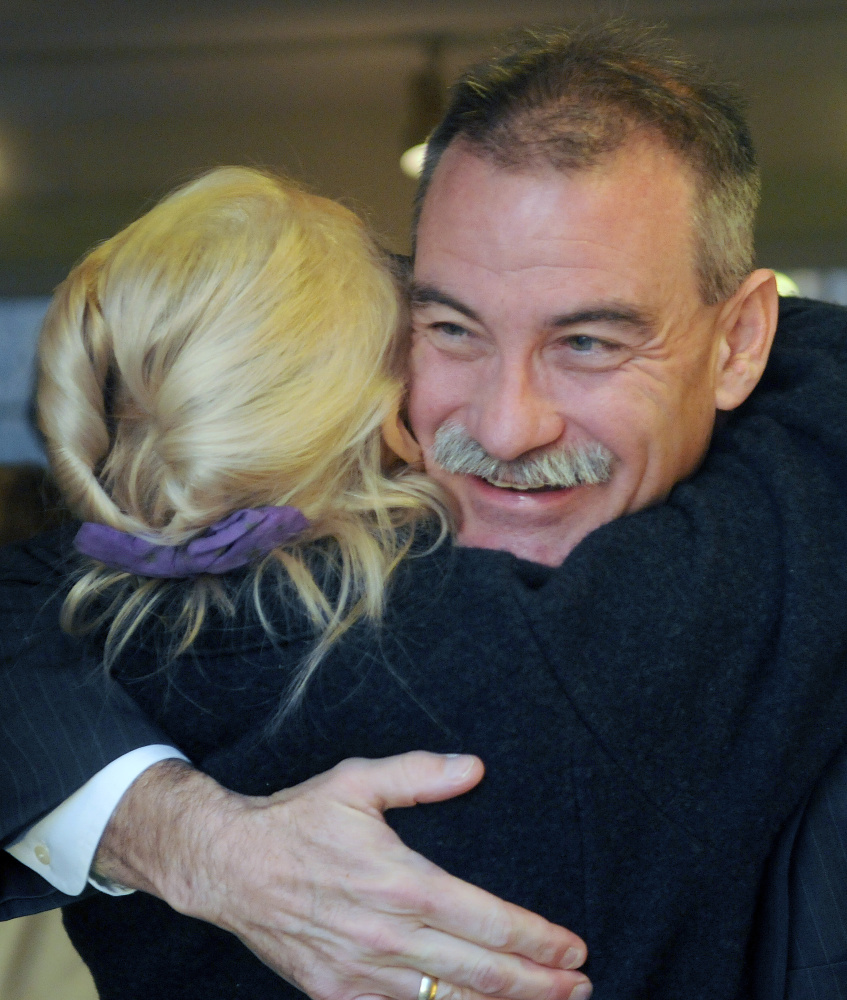WAYNE — A former U.S. State Department official who served under Colin Powell told a standing-room-only crowd here Sunday the United States can overcome past strategic errors which fostered the growth of international terrorism by forming a morals-based coalition, including Arab nations, to exterminate evil.
As former U.S. Secretary of State Colin Powell’s assistant secretary for International Narcotics and Law Enforcement, Wayne’s own Robert “Bobby” Charles set up police training programs in Iraq, Jordan, Afghanistan, Kosovo and Colombia and sat in on daily White House situation room briefings.
Charles said the U.S., under then-president George W. Bush, erred in withdrawing from Iraq too soon and without first sending in police forces made up of Iraqis trained by Americans in programs he oversaw, which resulted in continued instability there.
He said the U.S. has also made mistakes in Afghanistan by not stomping out heroin production infrastructure, resulting in today’s terrorism being funded, in large part, by heroin produced there.
“We have to confront transnational crime,” he said. “Most of the funding for terrorists today comes out of Afghanistan, from heroin. Chiefly because we didn’t take the action we should have in Afghanistan.”
He faulted President Barack Obama’s administration for pursuing a foreign policy with a main goal of disengaging from trouble elsewhere in the world, a strategy of inaction and indifference he said is bound to fail.
“If we don’t lead, credibly and confidently, we’ll be dragged into it and not on our terms,” he said of the fight against terrorism. “Our foreign policy today scares allies and emboldens enemies.”
But his presentation, which packed some 50 people into Cary Memorial Library’s Williams House Sunday evening, wasn’t all doom and gloom. He also offered what he said is a way for the U.S. to lead the way in reversing the trend of increasing terrorism worldwide, which recently reared its ugly head in Paris.
“ISIL (the self-proclaimed Islamic State) will fall when the world — especially the Arab world — re-moralizes the discussion and resolves to confront evil together,” Charles said. “We need to put them to rest, quickly. We have to realize half-measures are not the way. What you saw in France Friday night is, in part, a reflection of having, in my view, underestimated the second, third and fourth-order consequences of not responding and being engaged in these countries. Particularly Syria and Iraq.”
He reassured attendees the U.S. is still the strongest nation on earth by multiple measures, as it was when he was growing up in Wayne, where he often returns to visit family and friends.
“I went to Wayne Elementary School under an American flag,” he said. “We believed in the Norman Rockwell America. And I’ll tell you what, it’s true. America is the world leader. If you don’t believe it, go back and read history. This country, twice in the last century, has exterminated fascism and saved Europe, and it couldn’t have saved itself. The last 100 years we’ve had to step up and be the leader many times. We never asked for it. It fell to us. And today, like then, the choice is leading, or be led. And we have to lead.”
From 1998 to 2009 Charles served as a Navy intelligence officer and previously worked in the Office of Domestic Policy for both the Ronald Reagan and George H.W. Bush White Houses. He later became staff director for the House of Representatives Subcommittee on National Security, International Affairs and Criminal Justice and at the same time led the Speaker’s Task Force on Counter Narcotics.
He has written about security and constitutional topics and is the author of the nonfiction book “Narcotics and Terrorism,” released in 2003. He has appeared on 60 Minutes, CNN, Fox, NPR, ABC, CBS and NBC news and been covered by national print media including the New York Times and the Washington Post.
“He’s probably one of the most credentialed people who ever came from Wayne,” resident Doug Stevenson said as he introduced Charles.
Charles said in 2004 he had 500 civilian mentors fresh off 10 months of American police training ready to deploy into Baghdad, Iraq, but the Department of Defense wouldn’t let them do so. He said over the next two years, “our Iraqi trained police were left to fend for themselves, and they eventually disappeared.” He said military forces taking the place of what police could have done there fostered resentment and terrorism.
He noted the U.S. has maintained a presence in Japan and Germany for decades.
Keith Edwards — 621-5647
Twitter: @kedwardskj
Send questions/comments to the editors.





Success. Please wait for the page to reload. If the page does not reload within 5 seconds, please refresh the page.
Enter your email and password to access comments.
Hi, to comment on stories you must . This profile is in addition to your subscription and website login.
Already have a commenting profile? .
Invalid username/password.
Please check your email to confirm and complete your registration.
Only subscribers are eligible to post comments. Please subscribe or login first for digital access. Here’s why.
Use the form below to reset your password. When you've submitted your account email, we will send an email with a reset code.